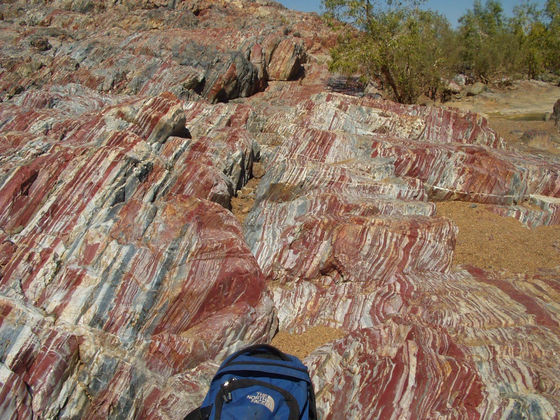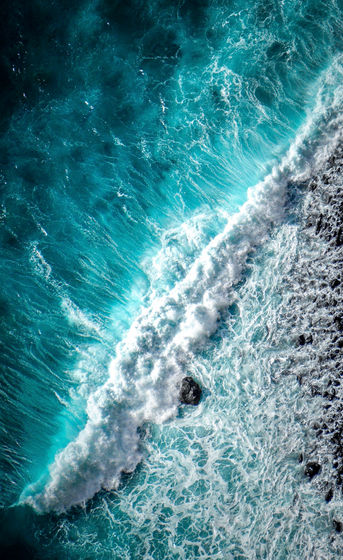Researchers point out that the earth 3.2 billion years ago was a `` water world '' without continents

Although it is thought that the continent was gradually formed after the earth was born before 4.6 billion years ago, there are various opinions on when the vast land was born. Meanwhile, a newly published study pointed out that the Earth 3.2 billion years ago was still a water world.
Limited Archaean continental emergence reflected in an early Archaean 18 O-enriched ocean | Nature Geoscience
Earth may have been a 'water world' 3bn years ago, scientists find | Science | The Guardian
https://www.theguardian.com/science/2020/mar/02/earth-may-have-been-a-water-world-3bn-years-ago-scientists-find
Boswell Wing , associate professor of geosciences at the University of Colorado at Boulder, and Benjamin Johnson, who studied geology with him and worked as a geologist at Iowa State University at the time of writing, said: A new project to investigate what it was like. '
The two projects seem to focus on the analysis of the continental crust, the Pilbara Craton, which is packed with geological information in the interior of northwestern Australia. It is clear that the earth's oceanic plate 3.2 billion years ago exists in this crust.

By
The researchers looked at the different types of oxygen in the 3.2 billion-year-old oceanic plate in the Pilbara Craton. In particular, we analyzed the relative amounts of oxygen 16 and oxygen 18 , which are stable isotopes of oxygen detected in more than 100 rocks, and tried to derive the difference between the time and the current sea. According to the work textbook (PDF) created by the Kanagawa Prefectural Museum of Life and Stars (PDF) , oxygen 18 is slightly heavier than oxygen 16 and has the characteristic of being less likely to evaporate.
Researchers have analyzed a 3.2 billion-year-old oceanic plate and found that seawater at that time contained more oxygen 18 than it does today. The most likely explanation is that there were no continents on Earth at the time. This is because when the continent is formed, the clay in the crust absorbs heavy oxygen isotopes in seawater, or oxygen-18.

Johnson explained, 'If there were no continents on the ocean, the proportion of oxygen isotopes would be different from today, and that's exactly what our research revealed.' I am.
However, the survey does not indicate that there was no land on Earth at the time. The research group suspects that small 'microcontinents' may have existed throughout the sea, but does not believe that the vast continents existed here and there as they are today.
The research group also suggests that there may be another reason that the ocean 3.2 billion years ago was rich in oxygen 18. If the continent forms much later than previously thought, clays that absorb oxygen 18 may have formed in the sea, rather than on land, and a chemistry similar to this discovery. It is said that there is a possibility that special characteristics will occur.

'The oldest continental material on Earth is about four billion years old, and the emergence and growth of continents has been a subject of constant debate,' said Alan Hasti, who studies igneous rocks at the University of Birmingham. Geologists are trying to estimate how the volume of the continent has changed over time in a variety of ways: volcanic activity associated with continental growth and erosion of land masses may alter the composition of the Earth's oceans and atmosphere. Because of the changes, this information is very important: new research on when the continent emerged is very welcome to us. '
Wing and his colleagues are planning to study the oxygen isotope ratios of the younger marine crust in the future.
Related Posts:
in Science, Posted by logu_ii







